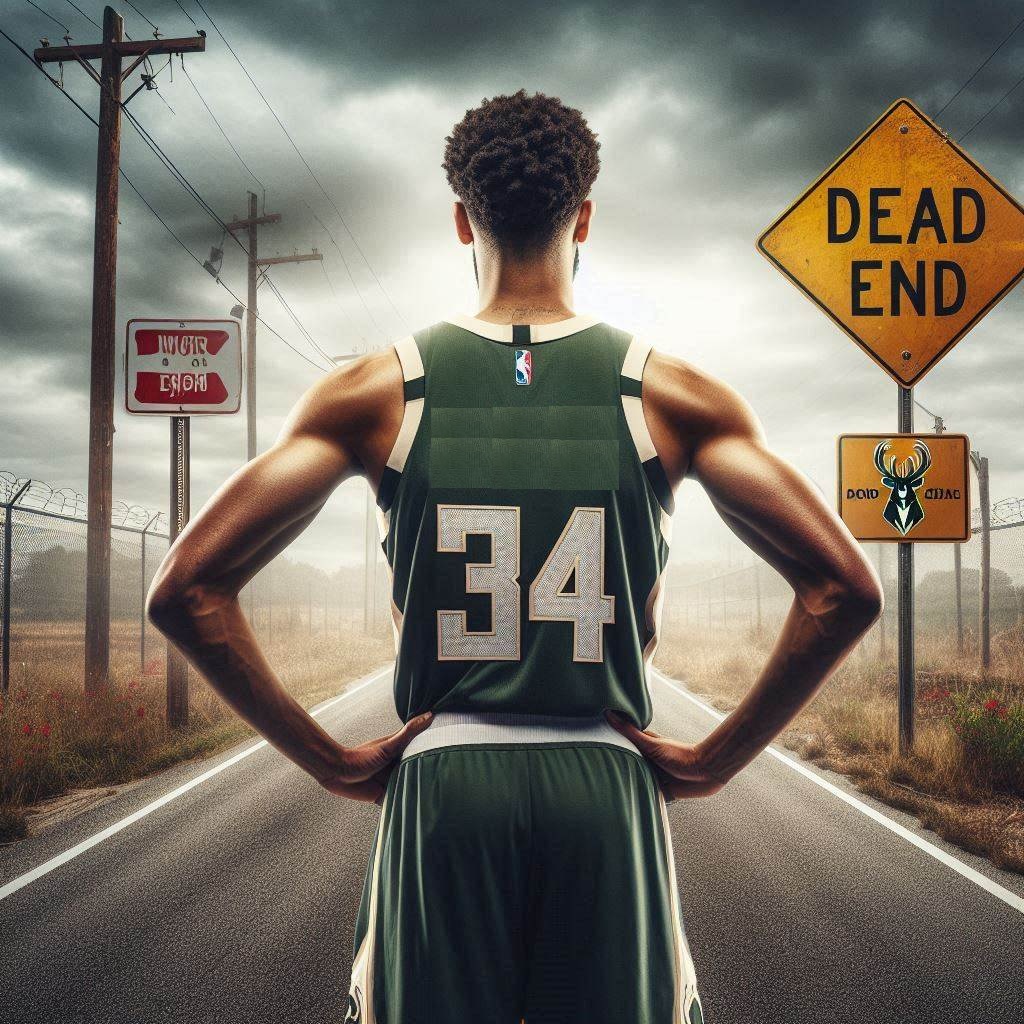In October 2023, Giannis Antetokounmpo, the Milwaukee Bucks’ two-time NBA MVP and franchise cornerstone, signed a three-year, $186 million contract extension, securing his future with the team through the 2027-28 season. This move quelled rampant speculation about his long-term commitment to Milwaukee and solidified the Bucks’ championship aspirations. However, the extension also sparked discussions about its financial, competitive, and strategic implications for both the Bucks and the broader NBA landscape.
The Contract Breakdown
Giannis’ extension, announced on October 23, 2023, builds on his existing five-year, $228.2 million supermax contract signed in 2020, which was the largest in NBA history at the time. The new deal adds three years and $186 million, with a player option for the 2027-28 season, ensuring flexibility for the 30-year-old superstar as he enters the later stages of his prime. Here’s a detailed breakdown of the financials, as reported by ESPN’s Bobby Marks:
- 2025-26: $57,604,893 (replacing a $51.5M player option)
- 2026-27: $62,213,285
- 2027-28: $66,821,676 (player option)
The extension assumes a 10% annual salary cap increase for the 2024-25 and 2025-26 seasons, a standard projection in NBA financial planning. By signing early, Giannis secured a higher guaranteed salary than he might have by waiting until 2024, when a four-year max extension could have exceeded $250 million but carried more risk due to potential injuries or market changes. The player option in 2027-28 also allows him to re-enter free agency or negotiate another extension as early as 2026, leveraging the NBA’s Over-38 rule to maximize future earnings.
Giannis’ decision was influenced by his brother, Thanasis Antetokounmpo, who emphasized the strategic benefits of signing early to avoid distractions and secure financial stability. Giannis himself admitted he didn’t know the exact value of the deal, stating, “I just signed it because I wanted to be here,” highlighting his loyalty to Milwaukee and desire to focus on basketball rather than contract speculation.
Why Giannis Signed Early
Giannis’ decision to extend in 2023, despite earlier stating he’d wait until 2024, was driven by several factors:
- Avoiding Distractions: Giannis expressed frustration with the constant media narrative surrounding his future, which intensified after Milwaukee’s first-round playoff exit in 2023. By signing early, he ensured the Bucks could focus on their championship pursuit without the cloud of “Will Giannis stay or go?” looming over every loss.
- Family Influence: Thanasis, whom Giannis jokingly calls “GM T.A.,” played a pivotal role in convincing him that signing now would provide security and flexibility. The Bucks’ commitment to keeping Thanasis on the roster, despite his limited on-court role, underscores the organization’s understanding of Giannis’ family-oriented decision-making.
- Organizational Commitment: The Bucks’ blockbuster trade for Damian Lillard in September 2023 signaled their all-in approach to contending. This move, coupled with long-term extensions for Khris Middleton and Brook Lopez, reassured Giannis that Milwaukee was serious about building a championship-caliber team around him.
- Financial Strategy: By locking in the extension, Giannis avoided the risk of injury or performance dips that could affect his leverage in 2024. The player option also positions him to capitalize on future salary cap increases or renegotiate at age 32, when he’ll still be in his prime.
Implications for the Milwaukee Bucks
The extension is a massive win for the Bucks, but it comes with significant challenges and opportunities. Here’s how it impacts the franchise:
1. Roster Stability and Championship Window
Giannis’ commitment through 2027-28 aligns his contract with Lillard’s, creating a four-year window to chase another title. The Bucks’ core—Giannis, Lillard, Middleton, and Lopez—is now locked in, providing continuity under coach Doc Rivers. Giannis’ recent performance, including a 26-point, 19-rebound, 10-assist triple-double in the 2024 NBA Cup victory (where he earned MVP honors), underscores his ability to dominate at an elite level.
However, the Bucks’ championship aspirations hinge on health and chemistry. Injuries have plagued the team, with Giannis listed as probable for games in early 2025 due to a foot sprain and shoulder tendinopathy, and Lillard sidelined by a calf injury. The Bucks’ 43-34 record in the 2024-25 season (as of April 2025) places them sixth in the Eastern Conference, indicating they’re not yet among the elite contenders like the Boston Celtics or Philadelphia 76ers. A deep playoff run in 2025 will be critical to validating the Lillard trade and Giannis’ extension.
2. Salary Cap Constraints
Giannis’ $48.7 million salary for 2024-25, escalating to $62 million annually by 2026-27, consumes a significant portion of the Bucks’ cap space. Combined with Lillard’s $48.8 million and Middleton’s $33 million, the Bucks are deep into the luxury tax, limiting their ability to add depth or make significant trades. The team’s trade of Jrue Holiday for Lillard depleted their draft capital, and recent reports suggest they’re exploring trades involving MarJon Beauchamp to acquire a defensive wing, a move constrained by their financial situation.
The Bucks’ reliance on veteran minimum contracts and re-signing players like Thanasis Antetokounmpo (valued for locker room presence despite a torn Achilles) reflects their limited roster flexibility. The NBA’s new CBA, with its punitive apron rules, further complicates roster-building, potentially forcing Milwaukee to rely on internal development or low-cost signings to bolster their bench.
3. Giannis’ Loyalty and Organizational Pressure
Giannis’ public statements, such as telling Greek media in February 2025, “They would have to kick me out,” reaffirm his loyalty to Milwaukee. This commitment alleviates pressure on the front office to entertain trade scenarios but raises expectations to deliver a contender. The Bucks’ aggressive moves—trading for Lillard and signing Giannis to multiple extensions—demonstrate their willingness to meet his demands, but failure to advance past the first round again could reignite speculation about his future, despite his contract.
NBA-Wide Implications
Giannis’ extension reverberates across the league, influencing trade markets, team-building strategies, and competitive dynamics. Here are the key implications:
1. Trade Rumors and Superteam Speculation
Despite Giannis’ commitment, trade rumors persist, fueled by the Bucks’ inconsistent performance and the allure of pairing him with other superstars. Recent reports have linked him to the Los Angeles Lakers, where a hypothetical trade involving Austin Reaves and draft picks could create a “Big 3” with LeBron James and Luka Doncic. Such a move would form a juggernaut, with Giannis’ transition offense and defensive versatility complementing James’ leadership and Doncic’s playmaking. However, the Bucks’ reluctance to trade their two-time MVP, combined with Giannis’ loyalty, makes this scenario unlikely unless Milwaukee’s playoff struggles intensify.
The Brooklyn Nets have also emerged as a potential suitor, with reports indicating Giannis is their “Plan A” for the 2025 offseason. At 25-51 and 12th in the East, the Nets lack star power and see Giannis as a transformative acquisition. However, prying him from Milwaukee would require an unprecedented package, likely including multiple first-round picks and young talent, which Brooklyn may struggle to assemble.
The Golden State Warriors have been mentioned as a dark horse, with insiders noting the situation is “worth monitoring.” A trade pairing Giannis with Stephen Curry would create a formidable duo, but the Warriors’ limited assets and Giannis’ long-term contract make this a long shot. These rumors highlight Giannis’ status as a generational talent, capable of reshaping any franchise, but his extension reduces the likelihood of a move barring a catastrophic Bucks collapse.
2. Impact on Small-Market Teams
Giannis’ decision to stay in Milwaukee, a small-market franchise, is a rare victory in an era where superstars often flock to coastal megamarkets like Los Angeles, New York, or Miami. His loyalty validates the Bucks’ strategy of building around a homegrown star through aggressive trades (Holiday, Lillard) and extensions. This model could inspire other small-market teams, like the Oklahoma City Thunder or Memphis Grizzlies, to double down on their core players rather than fearing inevitable departures.
However, it also underscores the pressure on small-market teams to overpay for talent and take risks to keep stars. The Bucks’ luxury tax burden and depleted draft capital are cautionary tales for teams like the Cleveland Cavaliers, who face similar decisions with Donovan Mitchell. Giannis’ extension sets a precedent that loyalty is possible but requires organizational excellence and financial sacrifice.
3. Competitive Landscape and Superstar Contracts
Giannis’ $186 million deal reinforces the escalating value of superstar contracts in the NBA. His $62 million average annual value (AAV) starting in 2025-26 sets a benchmark for other max extensions, such as Jayson Tatum’s five-year, $314 million deal with the Celtics. The rising salary cap, projected to increase 10% annually, enables these massive contracts, but it also exacerbates the gap between contending teams with max players and rebuilding teams reliant on rookie deals.
The extension also highlights the strategic use of player options. By including one for 2027-28, Giannis retains leverage to renegotiate or test free agency at 32, a tactic increasingly common among stars like LeBron James and Kevin Durant. This flexibility ensures Giannis can capitalize on future cap spikes or demand roster upgrades if the Bucks falter, influencing how other superstars structure their deals.
4. Endorsement and Financial Empire
Beyond his NBA salary, Giannis’ net worth, estimated at $93.8 million to $120 million as of 2025, reflects his off-court earning power. His endorsements with Nike, JBL, and others, along with investments like a stake in the Milwaukee Brewers, amplify his financial influence. The extension’s guaranteed money provides a safety net for these ventures, allowing Giannis to expand his empire without immediate financial pressure. This trend of superstars building wealth beyond basketball—seen with players like LeBron and Stephen Curry—could reshape how young players approach their careers, prioritizing long-term financial security over short-term team success.
Potential Risks and Challenges
While the extension is a coup for Milwaukee, it carries risks:
- Injury Concerns: Giannis’ recent injuries, including a left calf issue in February 2025 and ongoing shoulder and foot ailments, raise questions about his durability. A significant injury could diminish his value and strain the Bucks’ cap situation.
- Playoff Performance: The Bucks’ back-to-back first-round exits in 2022 and 2023 expose vulnerabilities. If they fail to advance in 2025, pressure could mount on Rivers, Lillard, and the front office, potentially unsettling Giannis despite his contract.
- Trade Market Constraints: The Bucks’ limited assets and high payroll restrict their ability to address roster gaps, such as a reliable backup big or perimeter defender. This could hinder their ability to compete with deeper teams like Boston or Denver.
- External Pressure: Persistent trade rumors, even if unfounded, could create a distraction. Teams like the Lakers, Nets, and Warriors will continue to monitor Giannis, especially if Milwaukee stumbles.
In the NBA, player contracts are binding agreements governed by the league’s Collective Bargaining Agreement (CBA), and there are limited mechanisms for a player to exit a contract early. Here are the possible scenarios:
- Player Option (2027-28):
- Details: Giannis can opt out of the final year of his extension (2027-28, $66.82 million) and enter free agency in July 2027. This is the most straightforward way for him to “get out” of the contract, but it’s not an immediate exit, as he’s locked in through 2026-27.
- Likelihood: This depends on his performance, the Bucks’ success, and market conditions in 2027. If the Bucks fail to contend for championships or if Giannis seeks a bigger market or new challenge, he might opt out. Conversely, at age 32, he might opt in for the guaranteed $66.82 million unless a more lucrative deal awaits.
- Critical Note: Opting out only applies to 2027-28, so it doesn’t allow an exit before the 2026-27 season unless other mechanisms are used.
- Trade Request:
- Details: While Giannis can’t unilaterally terminate his contract, he could request a trade, leveraging his superstar status to pressure the Bucks into moving him. NBA stars like Kevin Durant and James Harden have successfully forced trades despite long-term contracts. A trade would require the Bucks to agree and find a team willing to offer significant assets (e.g., players, draft picks).
- Likelihood: Giannis has expressed loyalty to Milwaukee, stating in February 2025, “I am not this kind of guy, they would have to kick me out,” and emphasizing his desire to stay as long as the Bucks are competitive. However, he’s also been vocal about wanting a championship-contending team, and his 2023 comments about needing the Bucks to prove commitment (before the Damian Lillard trade and extension) sparked trade speculation. If the Bucks struggle (e.g., their 40-34 record in 2024-25 places them sixth in the East, not among top contenders), or if key players like Lillard (age 34) or Middleton (age 33) decline, Giannis could reconsider. The Nets reportedly view him as “Plan A” for a potential trade this offseason, indicating interest from other teams.
- Challenges: A trade would require a massive package, as Giannis is a two-time MVP, Finals MVP, and Defensive Player of the Year. The Bucks, having traded for Lillard to appease Giannis, would likely resist unless their title window closes definitively. Additionally, Giannis’s loyalty and the Bucks’ efforts (e.g., acquiring Lillard, re-signing Middleton and Lopez) make a trade request less likely in the near term.
- Critical Note: Trade requests aren’t guaranteed to succeed and depend on team dynamics. The Bucks’ front office has shown commitment to Giannis, but player empowerment in the NBA means a determined star can often force a move, though it could damage his reputation among fans.
- Contract Buyout:
- Details: A buyout occurs when a player and team mutually agree to terminate the contract, with the player typically forfeiting some guaranteed money. The player then becomes a free agent but cannot sign with a playoff contender for the same season if the buyout occurs after March 1.
- Likelihood: Extremely unlikely. Buyouts are rare for superstar players on max contracts, especially for someone of Giannis’s caliber and age (30 in 2025). The financial hit for both Giannis (forfeiting millions) and the Bucks (absorbing dead cap space) makes this impractical. Buyouts are more common for veteran role players on smaller contracts.
- Critical Note: This option is unrealistic given Giannis’s value to the Bucks and his earning potential. It’s mentioned for completeness but is not a viable path.
- Contract Termination for Breach or Special Circumstances:
- Details: A contract can be voided if the team breaches terms (e.g., fails to pay) or if extraordinary circumstances arise (e.g., medical retirement due to injury). The NBA CBA also allows for termination in cases of severe misconduct by the player, but this is irrelevant here.
- Likelihood: Negligible. The Bucks are a stable franchise unlikely to breach payment terms, and Giannis is in his prime with no reported career-threatening injuries. Medical retirement would require a catastrophic, unforeseen injury, and even then, insurance often covers part of the contract.
- Critical Note: This is a theoretical option with no current basis in Giannis’s situation.
- Waiting for Free Agency:
- Details: If Giannis plays out the guaranteed years of his contract (through 2026-27), he can enter free agency in 2027 by declining his player option. This isn’t an immediate exit but allows him to leave without the Bucks’ consent.
- Likelihood: This is a plausible long-term strategy. Giannis could wait to assess the Bucks’ competitiveness, especially as Lillard (age 36 in 2026) and other core players age out. By 2027, he’d be 32, still in his prime, and could command a massive contract elsewhere. However, this requires fulfilling four more seasons, which doesn’t align with an immediate desire to “get out.”
- Critical Note: Waiting until 2027 aligns with Giannis’s comments about prioritizing winning over money, but it depends on the Bucks’ performance. His decision to sign the 2023 extension despite initially planning to wait suggests he’s willing to commit when the team shows effort (e.g., Lillard trade).
So about Giannis’ contract
Giannis Antetokounmpo cannot easily “get out” of his contract before the 2026-27 season due to NBA CBA rules and the lack of viable mechanisms like buyouts or terminations for a player of his stature. His most realistic paths are:
Opting Out in 2027: Using his player option to enter free agency after the 2026-27 season, a long-term but guaranteed exit.
Requesting a Trade: Pressuring the Bucks for a trade, which is possible but unlikely given his loyalty and the Bucks’ efforts to build a contender around him.
Giannis Antetokounmpo’s three-year, $186 million extension is a defining moment for the Milwaukee Bucks and the NBA. It cements Giannis’ loyalty to a small-market franchise, aligns the Bucks’ core for a championship push, and sets a financial benchmark for superstar contracts. However, it also locks Milwaukee into a high-stakes gamble, with a massive luxury tax bill and limited roster flexibility. For the league, Giannis’ decision dampens trade speculation but fuels ongoing narratives about superteam possibilities and the challenges of building contenders under the new CBA. But it would mean nothing if he really wanted to leave.
As the 2024-25 season progresses, all eyes will be on Milwaukee to see if Giannis and Lillard can deliver another title. Even if they drop out of the playoffs early however my guess is that Giannis will stay. He is too afraid to test himself with a different team and lacks the skills to adapt. He likes being spoilt at the Bucks and the narrative of him being the sole super hero. It will be easy to continue to stat pad and blame everyone else.
Sources: EssentiallySports: Giannis’ net worth and investments / ESPN: Bobby Marks on contract breakdown / The Athletic: Details on Giannis’ family influence and extension rationale/ JSONLINE: Giannis’ comments on loyalty / Various rumours on trades






